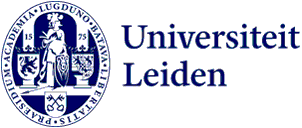
‘You don’t need to be Greta Thunberg to make a difference’
Sharing his passion for sustainability with students—that’s what Thijs Bosker enjoys most about his work. As an environmental scientist, he conducts ecotoxicological research, but next to this he loves teaching. ‘Everyone can make a difference in their own way.’
How do you get a diverse group of students excited about sustainability, especially when we get daily news flashes about environmental crises all around us? ‘Yes, we are at a critical junction when it comes to the environment, and we should not shy away from highlighting these issues. But at the same time we need to focus on the change we can make together,’ says Thijs Bosker, Associate Professor of Environmental Science. ‘You can sometimes feel so overwhelmed by the magnitude of the issues that you lose sight of what is possible. That’s what I try to show to my students.’
Finding solutions through collaboration
Bosker has been teaching sustainability for almost 20 years, the last 12 of which have been at Leiden University. He has developed various courses, all with sustainability at their core. ‘I want to show students that whatever their passion may be, there’s always a way for them to contribute to sustainability issues, no matter how big or small. We don’t all need to be Greta Thunberg or solve the world’s food problem single-handedly to make a meaningful contribution.’
‘You can’t solve major environmental challenges by just working in a lab or developing a new climate model’
This passion also led to his involvement with the new bachelor’s programme in Science for Sustainable Societies, where he now serves as programme director. ‘You can’t solve major environmental challenges by just working in a lab or developing a new climate model. It has to happen through collaboration across a wide range of disciplines—from environmental science to psychology, anthropology, and public administration. That’s what we’ll be bringing together in the new programme.’
‘You need to be able to see things from different perspectives’
Bosker has been working with colleagues from various backgrounds for years. ‘Our new programme brings together a wide variety of fields, from natural sciences to social sciences. This also means we sometimes look at the world in completely different ways. That brings fresh insights, but also challenges, as we can end up speaking completely different “languages.” But once you learn to understand each other’s language, you can use that knowledge to find workable solutions in sustainability.’
Wanted: bridge-builders for the future
Bosker believes these bridge-builders are urgently needed. ‘We face enormous transitions as a society, and in this era of polarisation, we see groups becoming more and more divided, often with conflicting ideas. But where can we find common ground? That’s a focus in this new programme. For this you need a solid understanding of environmental issues, but also of the social system. If you can bring those together, you’ll have people who can really make a difference in the sustainability transition.’
‘It’s important to give something back’
For Bosker, giving back is crucial. How does he contribute? ‘Firstly, through my teaching, by passing on my enthusiasm to students. But also by engaging the wider public in this topic.’ For two years, he has hosted a weekly radio item on Den Haag FM, where he talks about science and sustainability. ‘This way, you reach people you wouldn’t normally connect with.’ Bosker believes these kinds of initiatives are vital. ‘As scientists, we’re funded by society, so giving something back is important.’

From counting critters in ditches to chatting with people at the market
One of the things Bosker enjoys most is leading field courses, such as on the Dutch island of Schiermonnikoog. ‘During a field course, after dinner, you often end up discussing with students what they’ve observed. What does it mean? How can we translate that into real changes in sustainability? This can also be done on a smaller scale: in the new programme, we’ll be doing plenty of fieldwork and excursions. From counting critters in ditches to interviewing people at the local market.’
